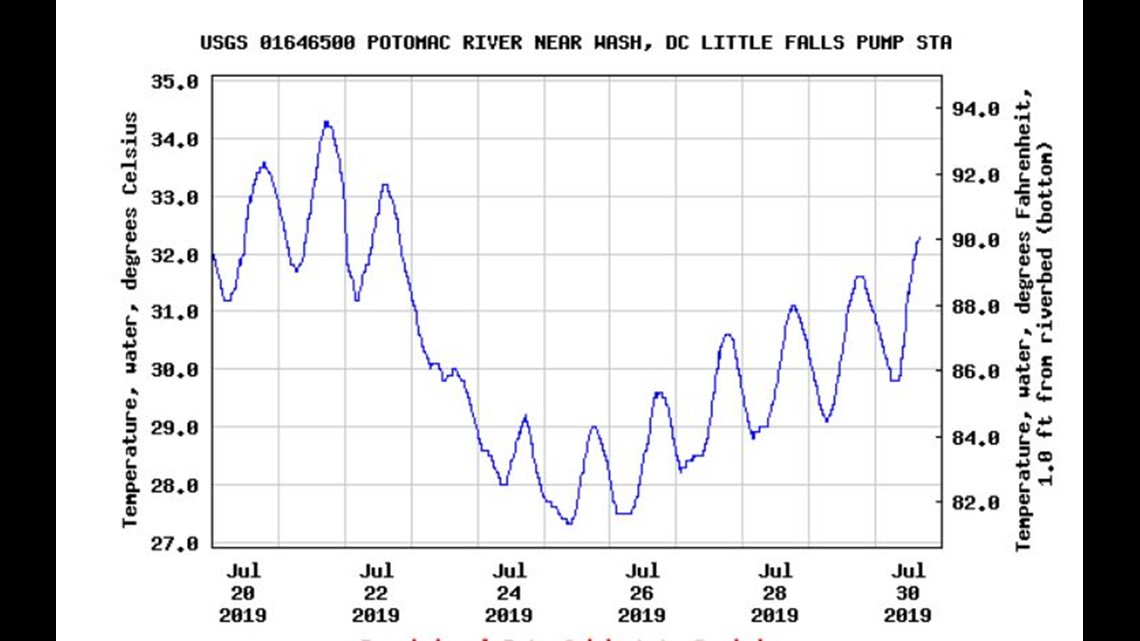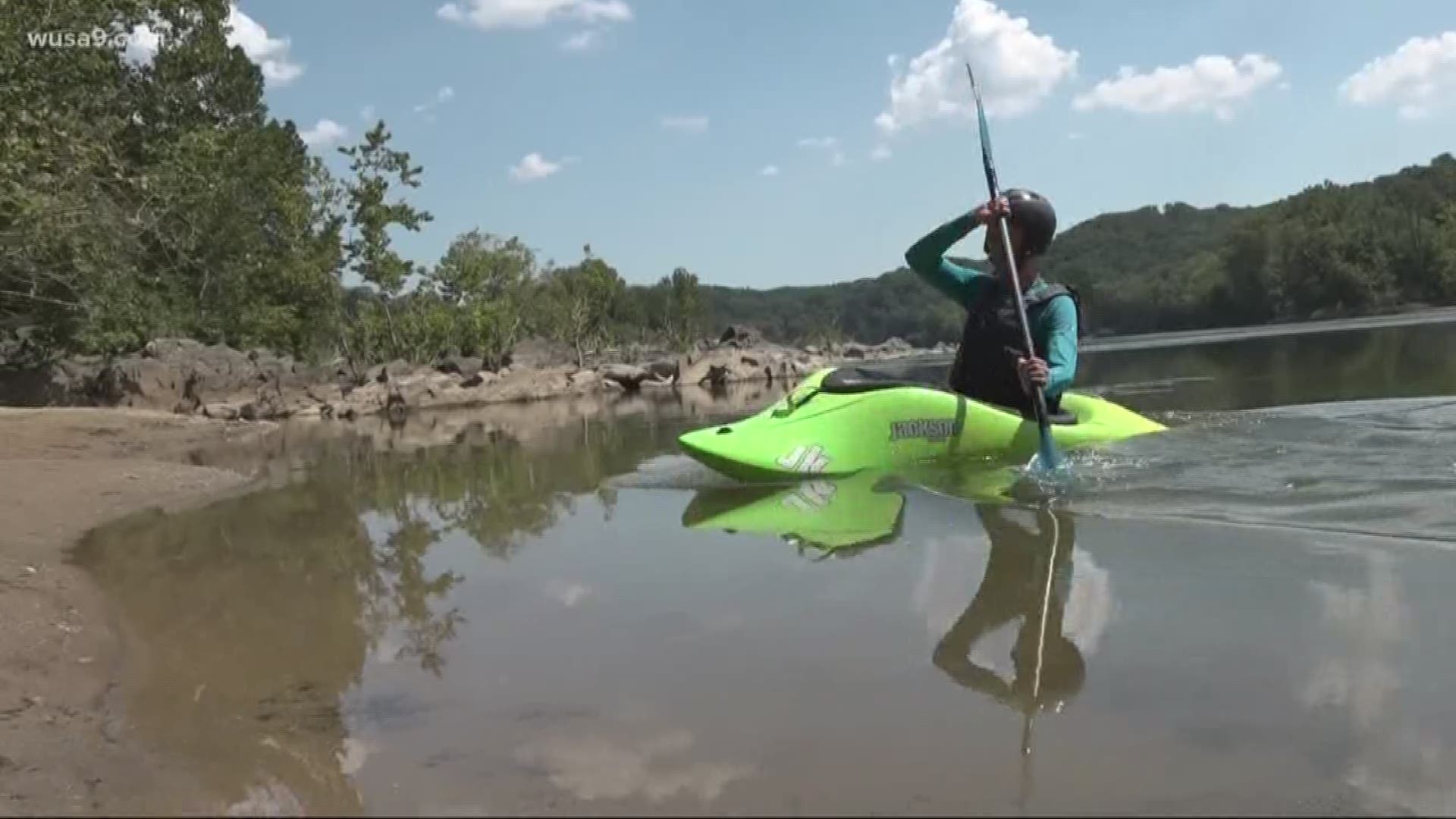WASHINGTON — The Potomac River is heating up toward near what can only be described as "hot tub" levels for the second time in less than two weeks after a stunning all-time record was set on July 20.
That Saturday, the thermometer at Little Falls measured the river's water temperature at 94 degrees.
The river temperature is rising again with a new wave of heat. Tuesday, the water was just shy of 90 degrees and rising.


The record was set after a heat wave that pushed air temperatures in the region over 100 degrees.
Hot water temperatures are associated with stressful environmental conditions including low oxygen, blooms of life-choking algae and higher bacteria levels.
The record temperatures have not resulted in any advisories to stay away from the water.
Kayakers and paddle boarders visiting the Mather Gorge below Great Falls have been marveling at the bath-water like conditions.
"Every year it seems just a little bit warmer," said kayaker Steve Haley. "I'm not real happy about the whole situation."
Scientists from the University of Maryland Center for Environmental Science are predicting that warmer winters in the Chesapeake Bay are likely to result in longer and more productive seasons for Maryland’s blue crab.
Phillip Musegaas, Vice President of Programs and Litigation for Potomac Riverkeeper Network believes it's another indicator of climate change underway in the region.
"We are seeing the effects of climate change on the Potomac River in real time, from extreme heat events that crank up river water temps, to extreme storms that cause record-high flows, flooding and huge sediment flows downstream to Chesapeake Bay," Musegaas said. "These extreme events are becoming the new norm, so it’s critically important that Maryland, Virginia and other states plans' to protect our rivers and restore Chesapeake Bay reflect this new reality."

